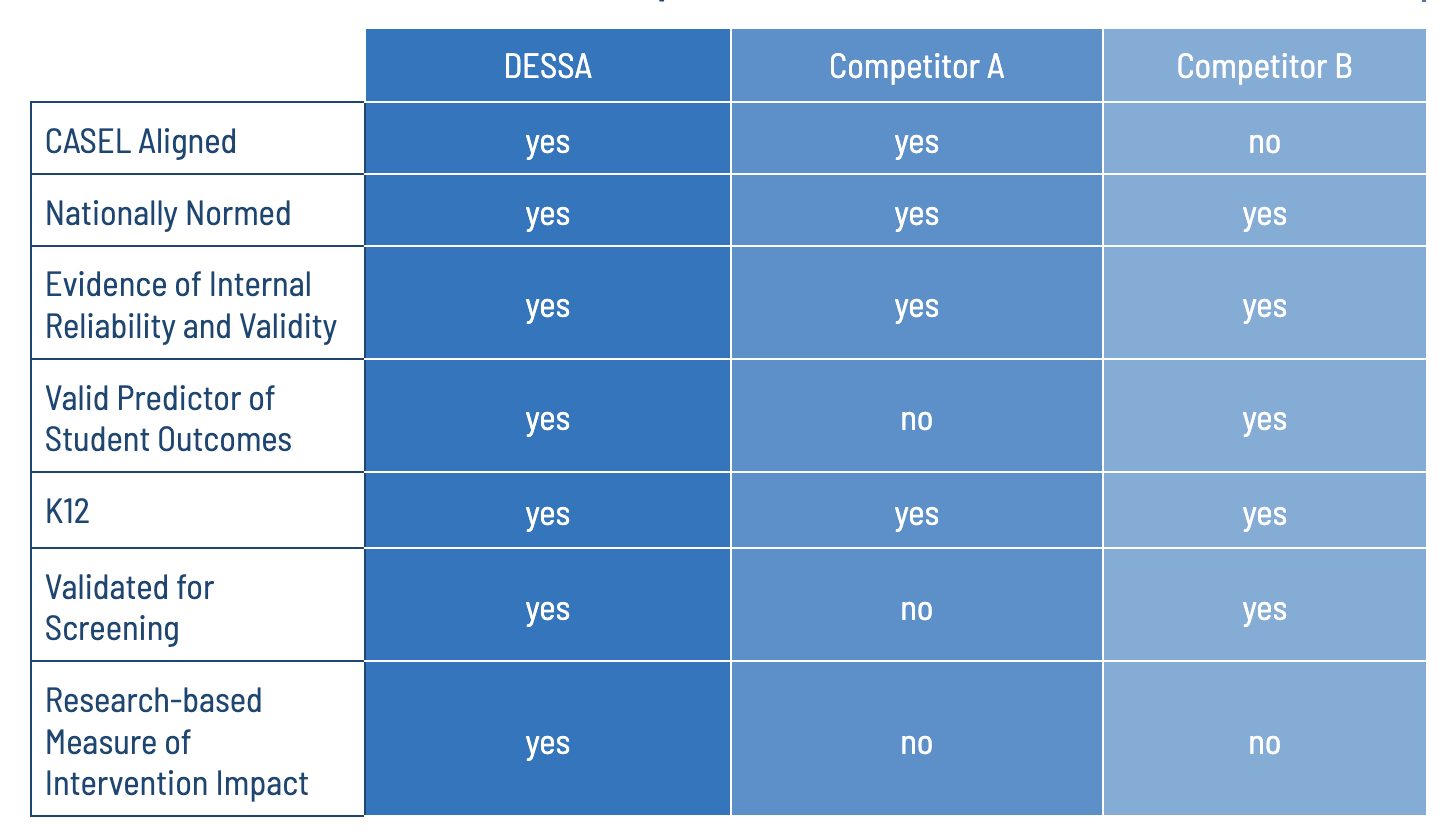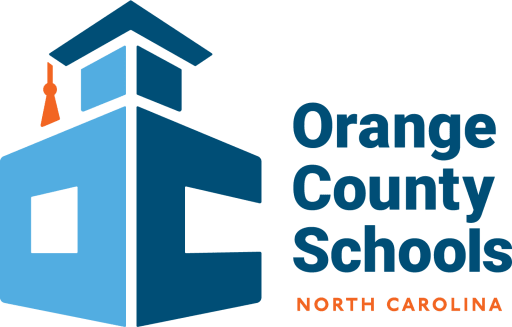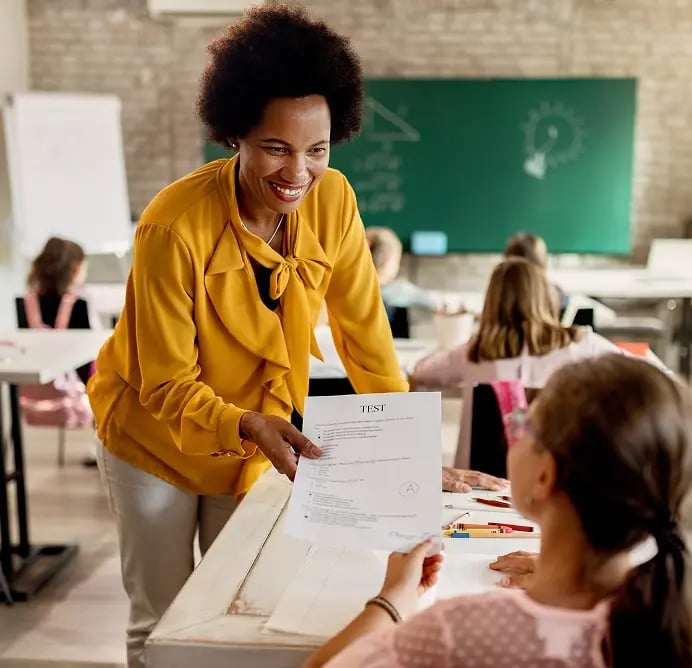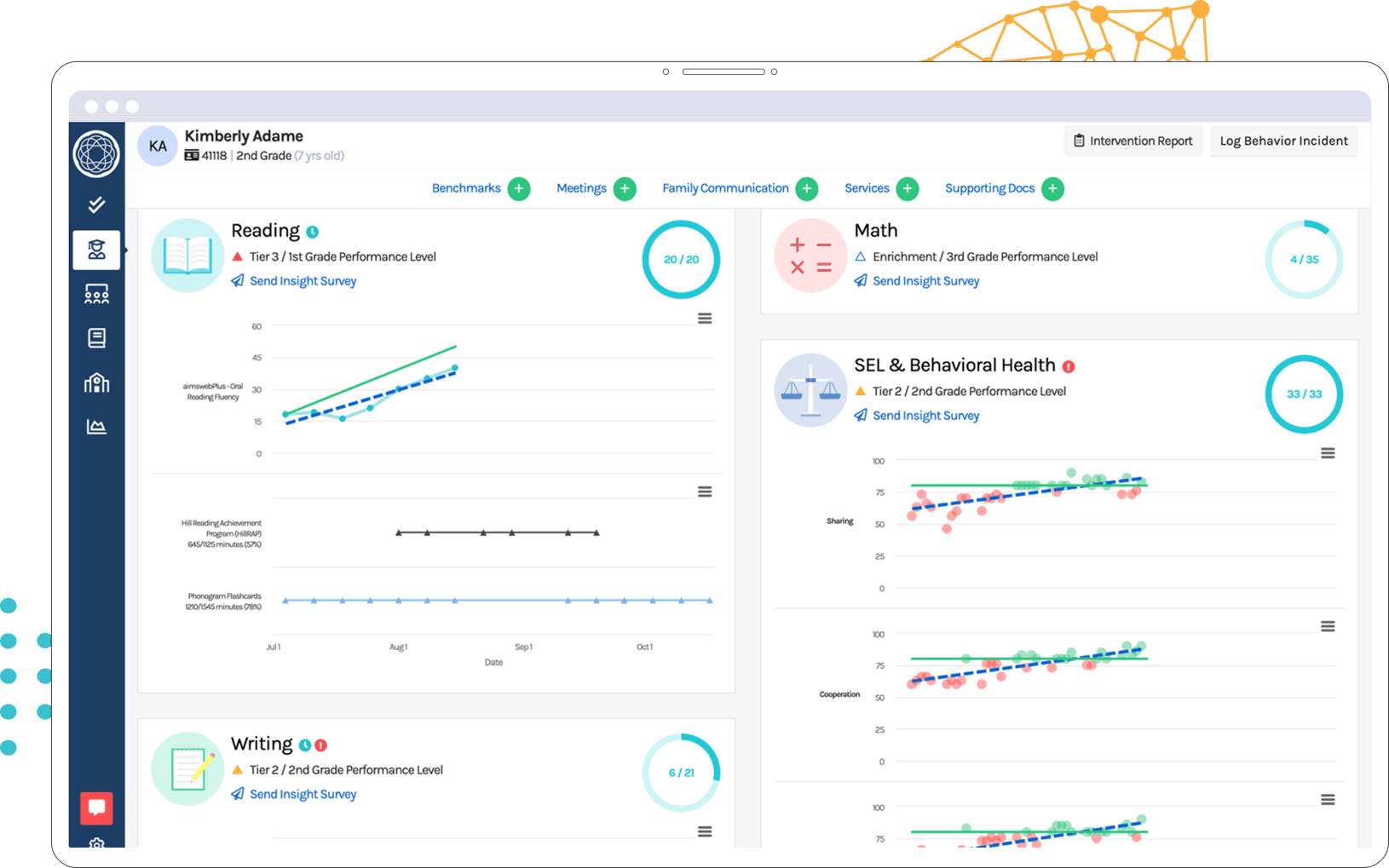Branching Minds + The DESSA
A complete SEL solution.

At Branching Minds, we have the ability to integrate social-emotional data from several surveys, assessments, and screeners with our platform so that educators can use this information to guide decision-making and best practices within an MTSS framework. Through our powerful technology integrations, we can ingest third-party SEL assessment data from various providers. We also provide all of our district partners with free access to the SECA, which is a student self-reported social-emotional assessment.
Additionally, our partnership with Aperture Education provides our district partners the ability to administer the DESSA-mini screener and DESSA diagnostic assessment for their students directly through the Branching Minds platform and use those results to ensure all students receive the social-emotional support needed to succeed.
Grounded in resilience theory and directly aligned to the CASEL framework, the DESSA is a user-friendly, practical social-emotional learning assessment that meets the highest professional standards. It is a standardized, strength-based assessment designed to measure social-emotional competence for students in grades K-12. (This functionality is optional and charged separately.)
The DESSA Suite of Assessments
- The DESSA-mini: A valid and reliable one-minute screener of students’ social and emotional competence. The DESSA-mini provides insight for students in grades K-8.
- The DESSA: The flagship assessment of Aperture Education. A valid and reliable 72-item assessment of social and emotional strengths and needs for students in grades K-8.
- The DESSA-High School Edition-mini (DESSA-HSE mini): A valid and reliable one-minute screener of students’ social and emotional competence for students in grades 9-12.
- The DESSA-High School Edition (DESSA-HSE): A valid and reliable 43-item assessment of students' social and emotional strengths and needs in grades 9-12.
How Will the DESSA Fit In With the Rest of Branching Minds?
-
Universally screen students’ SEL competence K-12 using the DESSA-mini and DESSA-HSE mini
-
Tier students based on DESSA-mini and DESSA-HSE mini scores
-
Further understand students’ perception of their own SEL competencies by administering the SECA (Social Emotional Competency Assessment) to students in grades 5-12
-
Further understand teachers’ perceptions of students’ SEL competencies:
-
Complete the BRM Behavior Insight Survey to see SEL and executive functioning strengths and challenges as they present to teachers across settings
-
Complete the BRM Reading, Writing, Math, Speech Insight Surveys to see when SEL competencies intersect with academic performance
-
Complete full DESSA assessment for a subset of students to evaluate in-depth SEL competencies
-
-
Create groups of students with shared SEL needs
-
Scaffold individual and group student support plans at the tier 1, 2, and 3 levels of need
-
Identify the best evidence-based SEL intervention targeted to individual student needs
-
-
Search our library of 1000s of evidence-based interventions, including all of Harmony SEL’s evidence-based strategies, activities, and games
-
Curate interventions based on individual or groups of students’ needs
-
-
-
Monitor students’ SEL progress using the DESSA-mini as a progress monitoring assessment
-
Communicate and collaborate with families and colleagues using strength-based language
-
Leverage Tier Health and Wellness Reports to understand SEL system health
How Does the DESSA Compare to Other SEL Assessments
Reach out for a detailed comparison with the assessment tools in the market.

How Will the DESSA Fit in With the Rest of Branching Minds?
Over the past decade, the DESSA has been cited in 100+ research articles that examine the tool’s rigor or use it as an outcome measure in a research study. The DESSA-mini has been similarly cited in over 30 peer-reviewed journal articles. Research has been published on the DESSA-mini’s sensitivity and specificity, establishing the strength of the screener in accurately identifying students in need of social-emotional instruction.
In studies including nationally representative samples of students, the DESSA-mini and DESSA have demonstrated evidence of internal reliability, indicating that the questions included on each measure are assessing a similar underlying construct.
The nationally representative sample also allowed for the development of national norms. The DESSA and DESSA-mini were found to exhibit strong test-retest reliability and reliability, as well as validity for their intended purposes, including content validity, criterion validity, and construct validity.
The DESSA-mini was found to have strong predictive validity; students screened as having a Need for SEL Support, via the DESSA-mini at the beginning of the school year, were 4.5 times more likely to have a record of serious disciplinary infraction at the end of the school year, compared with those whom the screener did not identify.
Like the DESSA K-8 and the DESSA-mini, the DESSA-High School Edition and the DESSA-High School Edition mini are also nationally standardized and norm-referenced.
Thus, the assessment can be applied to students nationwide, regardless of age, gender, or other demographic factors. In addition, it exceeds the recommended standard for reliability and assessment validity.
Real Stories. Real Impact.

"We needed full staff buy-in and a way to make MTSS doable. We needed to look at the whole child, including attendance and behavior, not just focus on progress monitoring data. And Branching Minds was just that."
Emily Myers
Director of MTSS, Orange County School District, NC
.png?width=200&height=200&name=richardson-isd%20(logo).png)
"Administrators can see what programs were used, which supports we're using, how often we’re using them, and whether or not we’re using them with fidelity, which is really important in intervention."
Laurel Dickson
Director of MTSS, Richardson ISD, TX
.png?width=2020&height=1300&name=Miamisburg%20City%20School%20District(logo).png)
"The streamlined workflows, intuitive menus, and ability to select interventions and assign tasks simplify the creation of support plans, ensuring educators can efficiently tailor strategies."
Dr. Laura Blessing
Superintendent, Miamisburg City Schools, OH

"Branching Minds is a place where any person serving that child can either document information or glean further information to help serve that child. That's been the biggest success with information that doesn't get lost in translation, because we start a new school year."
Jeanine Kidwell
Principal, Libby School District 4, MT

Subscribe to The MTSS Spark
MTSS strategies + resources, landing in your inbox once a week
Ready to Make Student Support Simpler and Stronger?
Discover how Branching Minds streamlines MTSS, empowers educators, and improves student outcomes, starting today.












